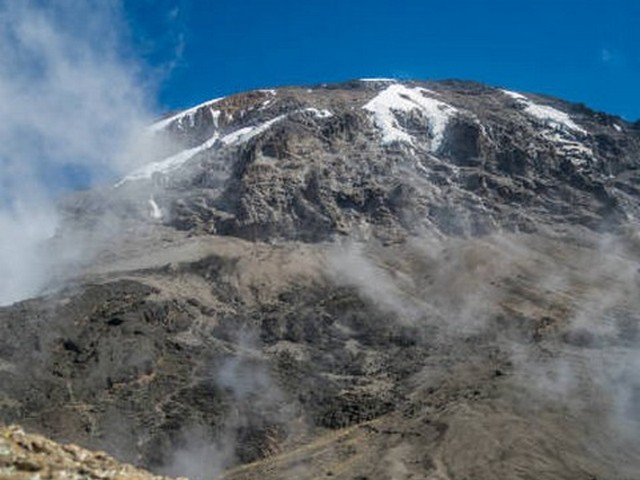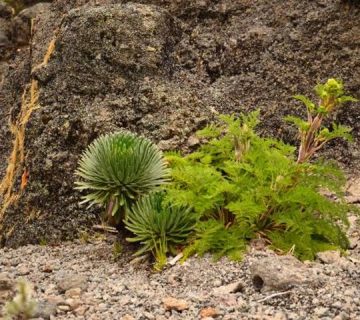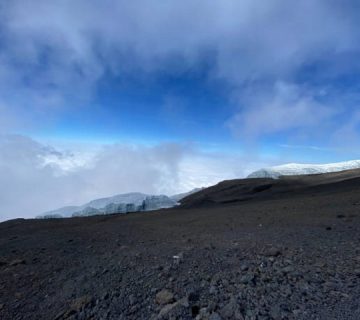Health Risks On Kilimanjaro: What To Be Aware Of
Welcome to the majestic world of Mount Kilimanjaro! Each step on this towering peak brings you closer to the roof of Africa, where the earth touches the sky. At Kilimanjaro Centre for Trekking and Ecotourism (KCTE), we are not just about guiding you to the summit; we ensure you embark on this journey with the highest safety and joy. Today, let’s talk about an essential topic every climber needs to understand before taking on this grand adventure — the health risks associated with climbing Kilimanjaro.
Climbing Kilimanjaro is an inspiring journey, filled with breathtaking landscapes and life-changing experiences. However, like any great adventure, it comes with its challenges, particularly related to health. Awareness and preparation are your best tools for a successful summit. Let’s dive into the key health risks and how to effectively manage them.
Altitude Sickness: The Invisible Challenge
Understanding Altitude Sickness
Altitude sickness, or Acute Mountain Sickness (AMS), is perhaps the most significant health concern on Kilimanjaro. As you ascend towards the peak, the decreasing air pressure and lower oxygen levels can affect almost anyone, regardless of age or fitness level.
Symptoms to Watch Out For
Symptoms of AMS include headache, nausea, dizziness, fatigue, and difficulty sleeping. It’s crucial to monitor how you feel and communicate any discomfort with your KCTE guides, as they are trained to help manage these symptoms effectively.
Prevention and Management
Preventing altitude sickness starts with a proper acclimatization process. At KCTE, we recommend routes that allow gradual ascent and include rest days. Stay hydrated, eat well, and walk at a pace that allows your body to adjust to the altitude changes.
Dehydration: More Than Just Dry Mouth
Recognizing Dehydration
Climbing Kilimanjaro exposes you to varied climates — from tropical warmth to alpine cold. This range, especially in warmer sections, can lead to dehydration, which often goes unnoticed in colder climates because you might not feel thirsty.
Staying Hydrated
Carry and consume plenty of water. We recommend drinking at least three to four liters per day. Our guides always ensure there’s enough water and encourage regular breaks for hydration.
Hypothermia: The Cold, Silent Threat
Understanding Hypothermia
As you climb higher, temperatures can drop significantly, especially near the summit where night-time temperatures can fall below freezing. Hypothermia occurs when your body loses heat faster than it can produce it, causing a dangerously low body temperature.
Combatting the Cold
Wear appropriate layered clothing, including a waterproof and windproof outer layer. Don’t hesitate to add more layers if you feel cold, and always change out of wet clothes immediately. At KCTE, we ensure our climbers are well-equipped and informed about appropriate gear.
Sun Exposure: Underestimated But Serious
The Risk of UV Rays
On Kilimanjaro, the thinner atmosphere at higher altitudes means UV exposure can be intense. Sunburn and eye damage are real risks that can complicate your trek.
Protection is Key
Always wear a broad-spectrum sunscreen, lip balm with SPF, and quality sunglasses. Reapply sunscreen as directed, especially after sweating or rubbing it off. A wide-brimmed hat can also provide added protection.
Infectious Diseases: Prevention Over Cure
Vaccinations and Precautions
While not specific to Kilimanjaro, ensuring that you’re up-to-date with vaccinations is crucial for any travel in Tanzania. Malaria and other infectious diseases are present, so consult with your healthcare provider for recommended vaccines and medications.
Personal Hygiene
Maintain good hygiene practices such as washing hands regularly. Using hand sanitizers and ensuring you’re consuming clean water are practices KCTE enforces to keep you healthy.
Nutrition: Fuel for the Climb
Eating Right on the Mountain
A balanced diet rich in carbohydrates, proteins, and fats is essential to maintain your energy levels during the climb. KCTE provides nutritious meals tailored to meet the needs of high-altitude trekking.
Addressing Dietary Needs
If you have specific dietary needs or allergies, inform us prior to your trek. Our culinary team is adept at handling a variety of dietary requirements to ensure that every meal contributes to a strong and healthy climb.
Join Us for a Safe and Memorable Climb
Embarking on a journey to conquer Kilimanjaro is thrilling and, with the right preparation, immensely rewarding. At Kilimanjaro Centre for Trekking and Ecotourism (KCTE), your safety and health are our top priorities. Our experienced guides, comprehensive climb support, and attention to every detail of the journey ensure that you can focus on enjoying the breathtaking beauty of Kilimanjaro.
If you’re dreaming of reaching the summit, trust KCTE to guide you there safely. Embrace the adventure, prepare for the challenges, and let us take care of the rest. Visit our website or contact us directly to book your Kilimanjaro climbing adventure today!
FAQ
Q: How can I best prepare for altitude sickness?
A: Besides choosing a gradual ascent route, start a fitness regimen before your trek, stay hydrated, eat well, and consider medications as advised by your doctor.
Q: What should I pack for my Kilimanjaro trek?
A: Essential items include thermal layers, waterproof and windproof jackets, trekking boots, sunglasses, sunscreen, a hat, and a quality sleeping bag suitable for low temperatures.
Q: Are there any age restrictions for climbing Kilimanjaro?
A: Climbers should be in good health and over the age of 10. However, each climber’s fitness will be assessed by KCTE to ensure safety.
Q: How long does it take to climb Kilimanjaro?
A: It typically takes 5 to 9 days depending on the route. We recommend routes that allow for better acclimatization, typically 7 days or more.
Q: Does KCTE offer group or private climbs?
A: Yes, we offer both options. You can join a scheduled group climb or book a private trek if you prefer a more personal experience.
Remember, the journey to the roof of Africa awaits. Let’s make it a safe and unforgettable adventure with KCTE. Your summit story starts here!




